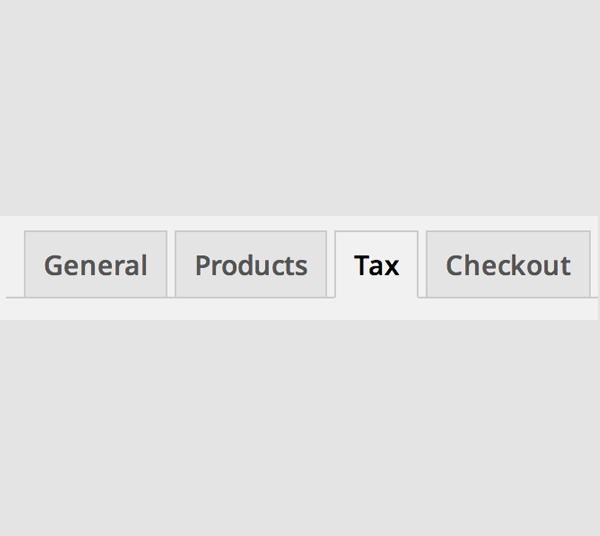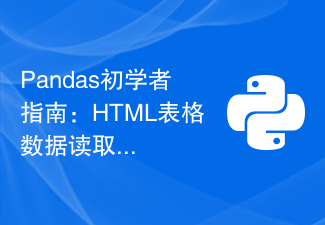Front-end development engineer is a very new profession. It really started to receive attention domestically and even internationally in 2005. It refers to the abbreviation of Web front-end development engineer. Web front-end development evolved from art, and the name has obvious characteristics of the times. In the evolution of the Internet, in the Web 1.0 era, the main content of the website was static, and users' behavior when using the website was mainly browsing. With the further development of the Internet, front-end development engineers have become a very sought-after talent in the market. Many students, including those who used to do UI, Java, or have no basic knowledge of IT, want to learn front-end. The picture below is a front-end learning mind map that is widely circulated on the Internet. Many beginners said that they were dizzy after seeing these dense knowledge points. Indeed, front-end is a broad subject. But if you want to learn front-end, don’t panic. Although there is a lot of content, there are traces to follow. As long as you take it step by step, you don’t have to worry about not being able to learn front-end!

So what do you need to learn about front-end development? How should I learn? Next, the editor will teach you how to learn front-end from scratch.
1. Getting Started with Front-End Development
In the entry stage, you must first learn the most basic skills: creating HTML static pages based on the UI design draft. This requires you to master HTML, CSS page layout, style beautification and other skills.
At this stage you need to learn:
1. HTML+CSS basics
Master the use of HTML tags, typesetting skills, CSS layout positioning, style beautification, and browser compatibility.
2. JavaScript Basics
Master the basic syntax, conditions, statements, loops, etc. of JS, learn common algorithms, and enhance logic.
3. Commonly used front-end tools
such as Webstrom, Sublime, Dreamweaver, etc. Mastering its shortcut key settings and other skills can quickly improve development and debugging efficiency.
The learning difficulty at this stage is relatively low. After learning this, we can already complete the production of static pages. Of course, this is just an introduction. If you want to use these skills to find a job, it will still be difficult.
2. Junior front-end development
In the next stage, our goal is to meet the basic requirements of the front-end development industry and give ourselves the confidence to go out and find a job. A job with a monthly salary of more than 8,000!
At this stage we must focus on mastering these two aspects:
1. Use jQuery, Bootstrap and other frameworks to develop complex interactive functions and effects;
2. Use HTML5, CSS3, Canvas for mobile end development.
For the first aspect of ability, you need to learn:
1. Basic JavaScript special effects
Be able to realize common web page special effects such as image carousel, drag and drop, and magnifying glass.
2. jQuery Basics
Master how to use jQuery’s common APIs, and be familiar with jQuery’s plug-in development mechanism.
3. Bootstrap responsiveness
Master the native responsive implementation mechanism and be able to use the grid layout and responsive layout in Bootstrap to develop complex page layouts.
4. AJAX Basics
Fully understand the principles of AJAX and master the use of AJAX in JS native and jQuery methods.
5. Popular UI framework
Master the use of jQueryUI to quickly and efficiently achieve the effect of page presentation.
After learning these skills, you will be able to independently create e-commerce and enterprise websites, achieve common JS dynamic effects, and achieve cool effects and complex functions based on jQuery, Bootstrap and other frameworks!
For the second aspect of mobile terminal development, you need to learn:
1. New features of HTML5 and CSS3
Master the skills of using HTML5 and CSS3 on the mobile terminal.
2. Canvas Basics
Master the basic drawing API of Canvas, so that you can realize the application of Canvas in reports and advertising display effects, and achieve cool display effects.
3. Mobile Web Framework
can develop mobile JS functions based on jQuery Mobile/Zepto and other frameworks.
Master these two skills, and you will be able to meet the basic requirements for front-end engineers in the market. According to market feedback data, the salary is generally 8,000-13,000 yuan/month, so hurry up and study!
3. Advanced front-end development
You will know that you are a person with ideals and ambitions and will not be satisfied with being a junior front-end development engineer. In the next stage, we will embark on the path of advancement in front-end development and raise our capabilities to another level. Likewise, the salary will also go up a level!
However, if you are a front-end novice, there may be some knowledge points that you have not used or heard of in the following article. Don't worry, you can save the article first and understand it later.
Getting back to the subject, at this stage, we must focus on mastering the following two aspects:
1. While implementing functions, consider the elegance of the code and focus on the performance and reusability of the code. ;
2. Have an in-depth understanding of the implementation principles of front-end frameworks, and be able to develop and reconstruct common front-end components.
At this stage you need to learn the following knowledge:
1. Object-oriented development thinking
2. JavaScript object-oriented
3. JavaScript closures, scope chain, prototype chain and other advanced features
4. Commonly used design patterns
5. Use Principle of native JavaScript implementation framework encapsulation
6, jQuery framework encapsulation principle
7, jQuery plug-in implementation principle
Master the implementation principle of jQuery plug-in, and deeply understand the implementation mechanism of the two extension methods of plug-in.
8. Component-based and modular development: SeaJS, RequireJS
If you are proficient in the above skills, you will have the ability to solve complex problems and technical difficulties, and be able to independently design and develop complex functional modules. If you reach this level, congratulations, you can meet the intermediate needs of the front-end industry. According to market feedback data, the salary is generally 13,000-20,000 yuan/month!
4. Senior Front-end Development
Writing this, even the editor is excited, because in the next stage, our goal is: to become a full-stack development engineer ! Full-stack development engineers are the kind of experts who are proficient in both front-end and back-end, and can quickly locate and solve problems when encountering them! According to statistics from Zhiyouji, the monthly salary of full-stack development engineers in Beijing is as high as 60% between 20K-50K, and there is a very shortage of talents!
To be promoted to a full-stack development engineer, we have to do the following things at this stage:
1. Be able to understand the principles and implementation patterns of popular frameworks from a global front-end perspective;
2 , have a deep understanding of the development model and technology selection of mobile apps;
3. Be familiar with the full-stack solution of Node.js;
4. Understand the mainstream back-end technology and front-end and back-end collaboration methods, and be able to understand it from a global perspective The entire life cycle of the project.
Correspondingly, you need to learn the following content:
1. Web development workflow framework: Yeoman/Grunt/Gulp/Bower, etc.
Master the popular front-end workflow tools, you can Make front-end development more convenient and efficient!
2. MVC/MVVM framework: AngularJS, etc.
Master the front-end MVC/MVVM framework implementation mechanism, deeply understand the MVC development model through the practice of AngularJS, and understand two-way data binding and other related concepts.
3. HTML5 responsive framework
4. Popular UI frameworks: jQueryUI, EasyUI, ExtJS, etc.
Master the encapsulation principles of common UI frameworks, and through source code analysis, deeply understand the idea of component development.
5. Ionic, Angular
Master the mobile hybrid development model, and understand the overall process and implementation mechanism of App development using HTML5, CSS3, and JS through the combination of Ionic and Angular.
6. React Native
Master the development model of ReactNative on the mobile terminal.
7, HTML5 Plus
8, Node.js full-stack development
It can be seen that if you want to make front-end development better and more professional, it is really not easy. This is the characteristic of front-end development, and it is also the reason why many people are confused. Such a complicated knowledge system makes it difficult for novices to start learning, and for veterans, they often don’t know what to learn next. So I hope the above front-end learning route can help everyone.
Related recommendations:
Requirements for self-study PHP from scratch
The growth path of PHP programmers
2017 Web developer learning roadmap detailed explanation
web front-end learning route: how to start from Learn DIV+CSS from scratch
 成为C语言专家:推荐的五个必备编译器Feb 19, 2024 pm 01:03 PM
成为C语言专家:推荐的五个必备编译器Feb 19, 2024 pm 01:03 PM从初学者到专家:五个必备的C语言编译器推荐随着计算机科学的发展,越来越多的人对编程语言充满了兴趣。而C语言作为一门广泛应用于系统级编程的高级语言,一直受到了程序员们的喜爱。为了写出高效、稳定的代码,选择一款适合自己的C语言编译器是很重要的。本文将介绍五个必备的C语言编译器,供初学者和专家们参考选择。GCCGCC,即GNU编译器集合,是最常用的C语言编译器之一
 WooCommerce税务指南:适合初学者的指南Sep 04, 2023 am 08:25 AM
WooCommerce税务指南:适合初学者的指南Sep 04, 2023 am 08:25 AM现在我们已经了解了WooCommerce产品及其相关设置,接下来让我们了解一下WooCommerce的税务配置选项。税收设置作为在线商店所有者,您永远不会想搞乱税务规则和问题。WooCommerce在这方面为您提供帮助,提供多种选项来解决所有税务设置,这些设置可能会因您所在的国家/地区和个别商店的要求而异。可以在以下位置找到这些选项:WooCommerce->设置->税。进入税务设置选项卡后,您将看到一个主要的税收设置部分以及三种不同的税级。这些是:税务选项标准费率降低利率零利率税收
 C++和Python,哪个更适合初学者?Mar 25, 2024 am 10:54 AM
C++和Python,哪个更适合初学者?Mar 25, 2024 am 10:54 AMC++和Python,哪个更适合初学者?在这个信息化浪潮席卷全球的时代,编程能力已经成为一项必备技能。而在学习编程的过程中,选择一门合适的编程语言显得尤为重要。在众多编程语言中,C++和Python都是备受初学者关注的两大热门选择。那么,C++和Python到底哪个更适合初学者呢?以下将从各方面对比两者的优劣,以及为什么选择某一种语言更有助于初学者的编程入门
 Python初学者必学:掌握lambda函数的基础用法Feb 02, 2024 pm 06:41 PM
Python初学者必学:掌握lambda函数的基础用法Feb 02, 2024 pm 06:41 PM初学者必备:掌握Python中lambda函数的基本使用方法,需要具体代码示例概述:Python是一种简单易学的编程语言,它以其简洁、灵活的语法吸引了众多程序员的喜爱。在Python中,lambda函数是一种特殊的匿名函数,它可以在需要函数的地方直接定义,并且无需给它一个名字。本文将介绍lambda函数的基本使用方法,并提供具体的代码示例,以帮助初学者更好地
 Pandas初学者指南:HTML表格数据读取技巧Jan 09, 2024 am 08:10 AM
Pandas初学者指南:HTML表格数据读取技巧Jan 09, 2024 am 08:10 AM初学者指南:如何用Pandas读取HTML表格数据引言:在数据处理和分析中,Pandas是一个强大的Python库。它提供了灵活的数据结构和数据分析工具,使得数据处理变得更加简单高效。Pandas不仅可以处理CSV、Excel等格式的数据,还可以直接读取HTML表格数据。本文将介绍如何使用Pandas库读取HTML表格数据的方法,提供具体的代码示例,帮助初学
 编程初学者应该优先学习C语言还是C++Mar 18, 2024 pm 03:15 PM
编程初学者应该优先学习C语言还是C++Mar 18, 2024 pm 03:15 PM标题:编程初学者应该优先学习C语言还是C++?在编程领域,C语言和C++是两种非常重要的编程语言,它们都有自己独特的特点和优势。对于初学者来说,选择学习哪种语言可能会有一些困惑。本文将就这个问题展开讨论,以及给出一些具体的代码示例来帮助初学者更好地了解两种语言的不同之处。首先,让我们来看一下C语言。C语言是一种功能强大且广泛应用的编程语言,它是从汇编语言发
 初学者必读:如何根据需求选择合适的Django版本?Jan 19, 2024 am 08:20 AM
初学者必读:如何根据需求选择合适的Django版本?Jan 19, 2024 am 08:20 AM对于初学者而言,选择合适的Django版本是一个重要而且必须要面对的问题。Django作为一个高效的Web框架拥有大量的用户和开发者,因此它也拥有多个版本以满足不同产品和应用的需求。但是,如何根据项目需求选择合适的Django版本呢?下面我们将通过一些实例来帮助大家选择适合自己的版本。确认所用数据库Django支持多个数据库,包括MySQL,Postgre
 使用matplotlib制作散点图的初学者指南Jan 17, 2024 am 09:58 AM
使用matplotlib制作散点图的初学者指南Jan 17, 2024 am 09:58 AMmatplotlib是Python中最常用的数据可视化库之一。它提供了各种绘图选项,包括线图、柱状图、散点图等等。本篇文章将教你如何使用matplotlib绘制散点图,同时提供具体的代码示例,以帮助初学者快速上手。一、导入matplotlib模块在开始使用matplotlib绘制散点图之前,首先,需要导入相关的Python模块。代码如下:importpa

Hot AI Tools

Undresser.AI Undress
AI-powered app for creating realistic nude photos

AI Clothes Remover
Online AI tool for removing clothes from photos.

Undress AI Tool
Undress images for free

Clothoff.io
AI clothes remover

AI Hentai Generator
Generate AI Hentai for free.

Hot Article

Hot Tools

SublimeText3 Mac version
God-level code editing software (SublimeText3)

SAP NetWeaver Server Adapter for Eclipse
Integrate Eclipse with SAP NetWeaver application server.

MinGW - Minimalist GNU for Windows
This project is in the process of being migrated to osdn.net/projects/mingw, you can continue to follow us there. MinGW: A native Windows port of the GNU Compiler Collection (GCC), freely distributable import libraries and header files for building native Windows applications; includes extensions to the MSVC runtime to support C99 functionality. All MinGW software can run on 64-bit Windows platforms.

Dreamweaver CS6
Visual web development tools

WebStorm Mac version
Useful JavaScript development tools





